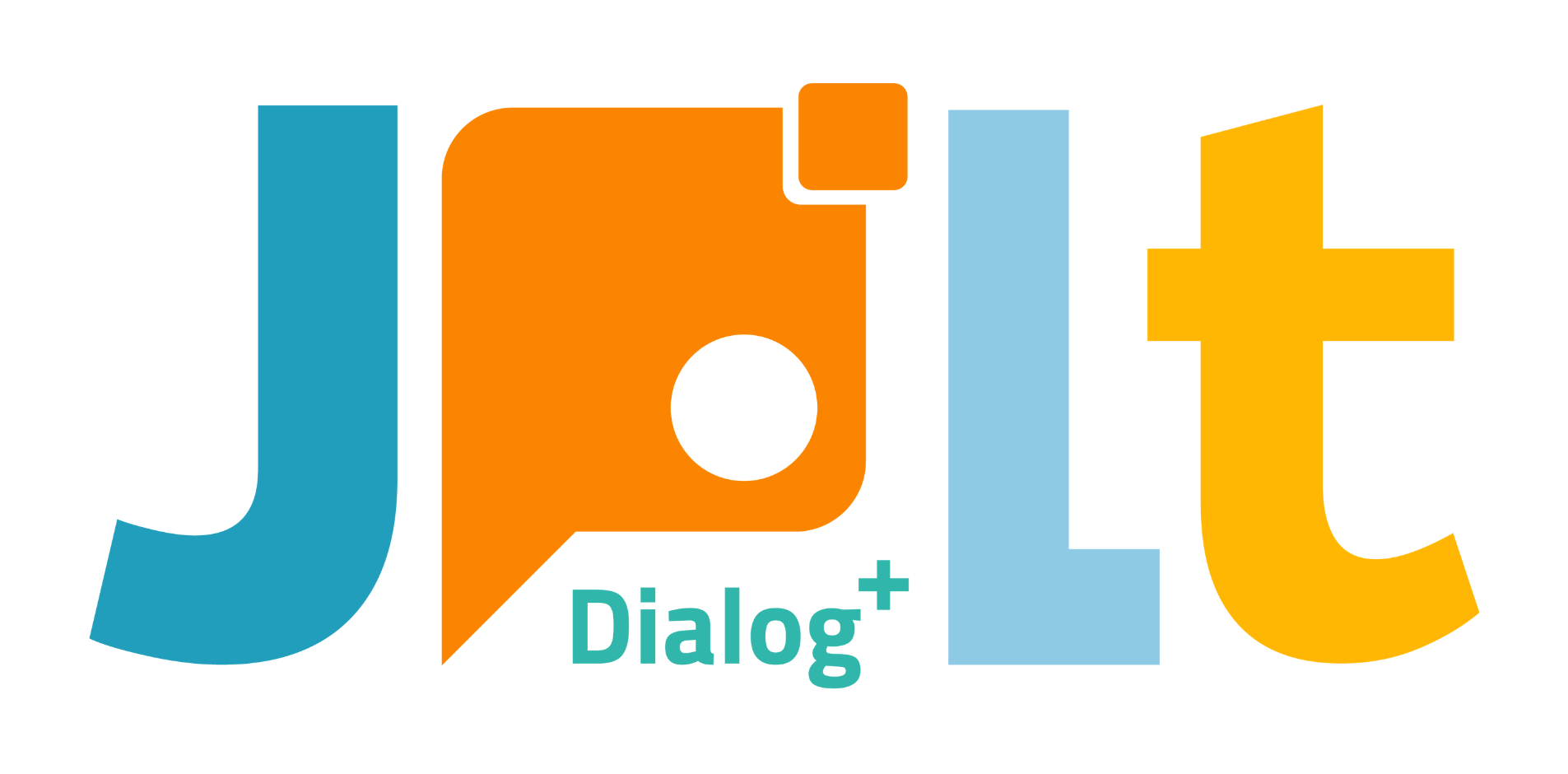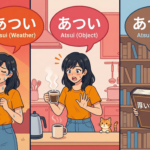![(Alt Text: Joy picking up a box [Motsu] vs. Joy owning a car [Motteiru])](https://jplt-dialogplus.com/wp-content/uploads/2025/11/ChatGPT-Image-Jan-20-2026-03_27_18-PM.png)
(Joy picking up a box [Motsu] vs. Joy owning a car [Motteiru])
“I have a pen.” (Motteiru)
“I will hold your bag.” (Motsu)
In Japanese, 持つ (Motsu) is an instant action (to take/pick up). 持っている (Motteiru) is a continuous state (to own/be holding). Mixing them up is a very common mistake! Let’s master it with Joy and Ken.
🗣 Conversation Scene
Joy sees Ken carrying many heavy boxes.
私(わたし)が半分(はんぶん) 持(も)ちます よ。
(Ken, you have so much luggage! I will “hold/carry” half for you.)
実は、もう一つカバンを 持(も)っている んです…。
(Thanks! That helps. Actually, I “have” one more bag…)
💡 Explanation
Is it an “Action” you do now, or a “Status” you have?
Point 1: Motsu (持つ) = To take / To pick up
Type: Instant Action
This verb describes the specific moment you grab something with your hand. It focuses on the movement.
- 荷物(にもつ)を 持ちます。
(I will carry/pick up the luggage. [Future Action]) - ペンを 持ってください。
(Please pick up/hold a pen. [Instruction])
Point 2: Motteiru (持っている) = To have / To own
Type: Continuous State
This describes the state after you picked it up. You are still holding it, OR you own it (Possession).
- (今)ペンを 持っています。
(I am holding a pen right now.) - (家に)車(くるま)を 持っています。
(I have/own a car. [Ownership]) - お金(かね)を 持っていません。
(I don’t have money.)
📊 Comparison Table
🚧 Joy’s Mistake
(Talking about her house)
❌ Wrong: 私は、広い家を 持ちます。
(This sounds like a future prediction: “I will lift up a big house” or “I will acquire a house in the future.”)
✅ Right: 私は、広い家を 持っています。
(To express “I have/own,” always use the -Te iru form.)
🔥 Practice Quiz
Tap to check the answer!



